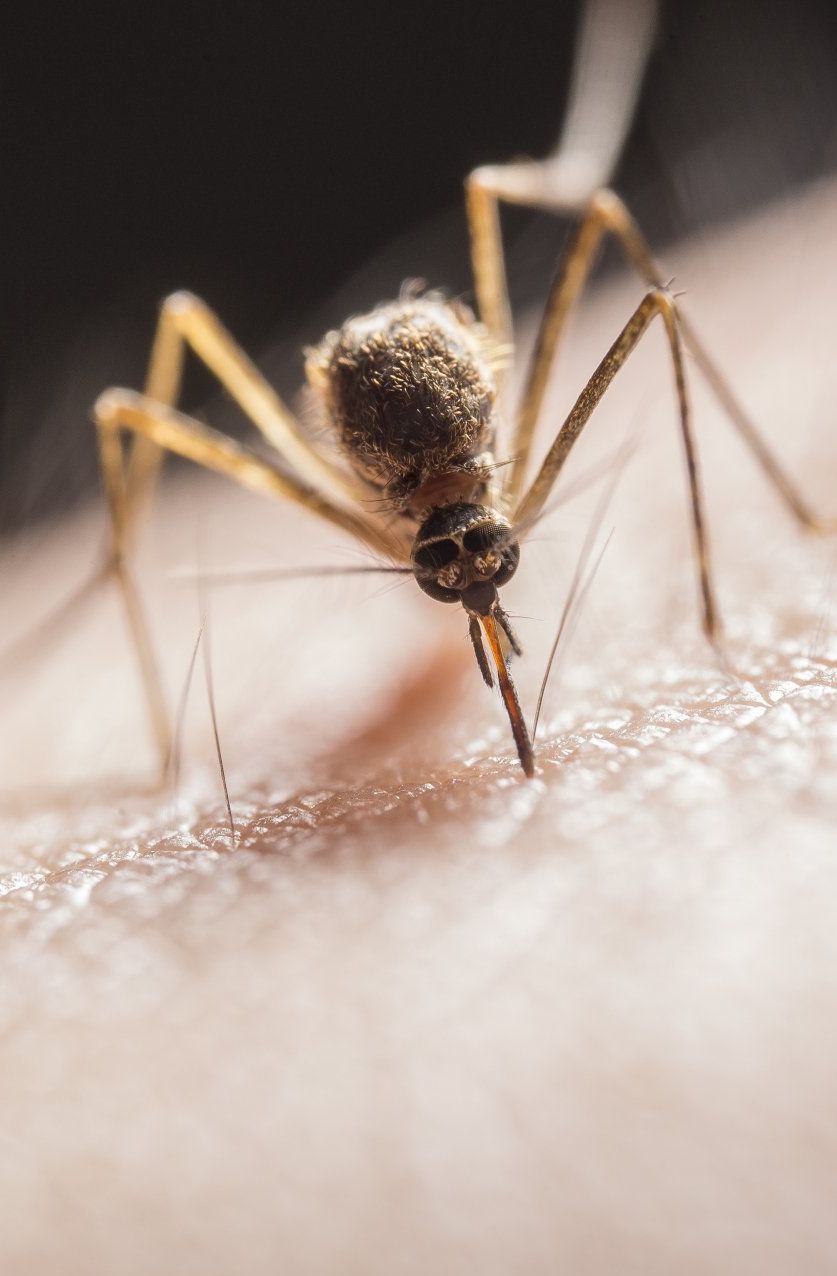MOSQUITOES

Mosquitoes
Mosquitoes, beyond being a nuisance, pose a notable health risk due to their potential to transmit diseases like West Nile virus and various forms of encephalitis. Their incessant buzzing and itchy bites make them unwelcome visitors in our living spaces. To mitigate the risk of mosquito-borne illnesses and enhance overall comfort, it is imperative to treat areas around the home regularly. By implementing targeted mosquito control measures, we not only reduce their annoyance but also safeguard the health and well-being of residents, creating a more enjoyable and safer environment.
Reproduction
Mosquitoes are prolific reproducers, with their breeding habits contributing to their vast populations. Here are some facts about mosquitoes and their reproduction:
- Water-dependent Breeding: Mosquitoes lay their eggs in standing water, and the larvae develop in aquatic environments like ponds, stagnant pools, or even small containers.
- Rapid Lifecycle: The mosquito life cycle consists of four stages: egg, larva, pupa, and adult. Under optimal conditions, this cycle can be completed in as little as a week.
- Egg Numbers: A female mosquito can lay hundreds of eggs during her lifespan, typically depositing them in batches called rafts or in clusters on the water's surface.
- Short Adult Lifespan: While their larval and pupal stages can take several days, the adult mosquito's lifespan is relatively short, often ranging from a few days to a couple of weeks.
- Blood Meal Requirement: Female mosquitoes often require a blood meal to nourish their developing eggs. It's the females that bite, as they need the proteins found in blood for reproduction.
- Species Variation: Different mosquito species have varying preferences for breeding sites, ranging from natural water bodies to artificial containers.
Understanding these reproductive traits helps in implementing effective mosquito control strategies, targeting their breeding grounds to reduce populations.


Keep Pets Safe
Mosquitoes can pose health risks to dogs and cats by potentially transmitting certain diseases. Heartworm disease is a notable concern, primarily affecting dogs, and it is transmitted through the bite of an infected mosquito. These parasites can cause serious and sometimes fatal conditions in pets. While cats are less susceptible to heartworms, they can still be affected. Additionally, mosquitoes may carry other diseases that can impact the health of pets.
